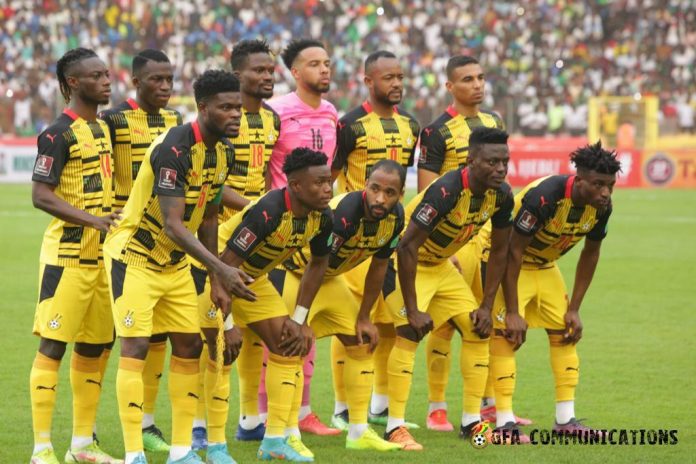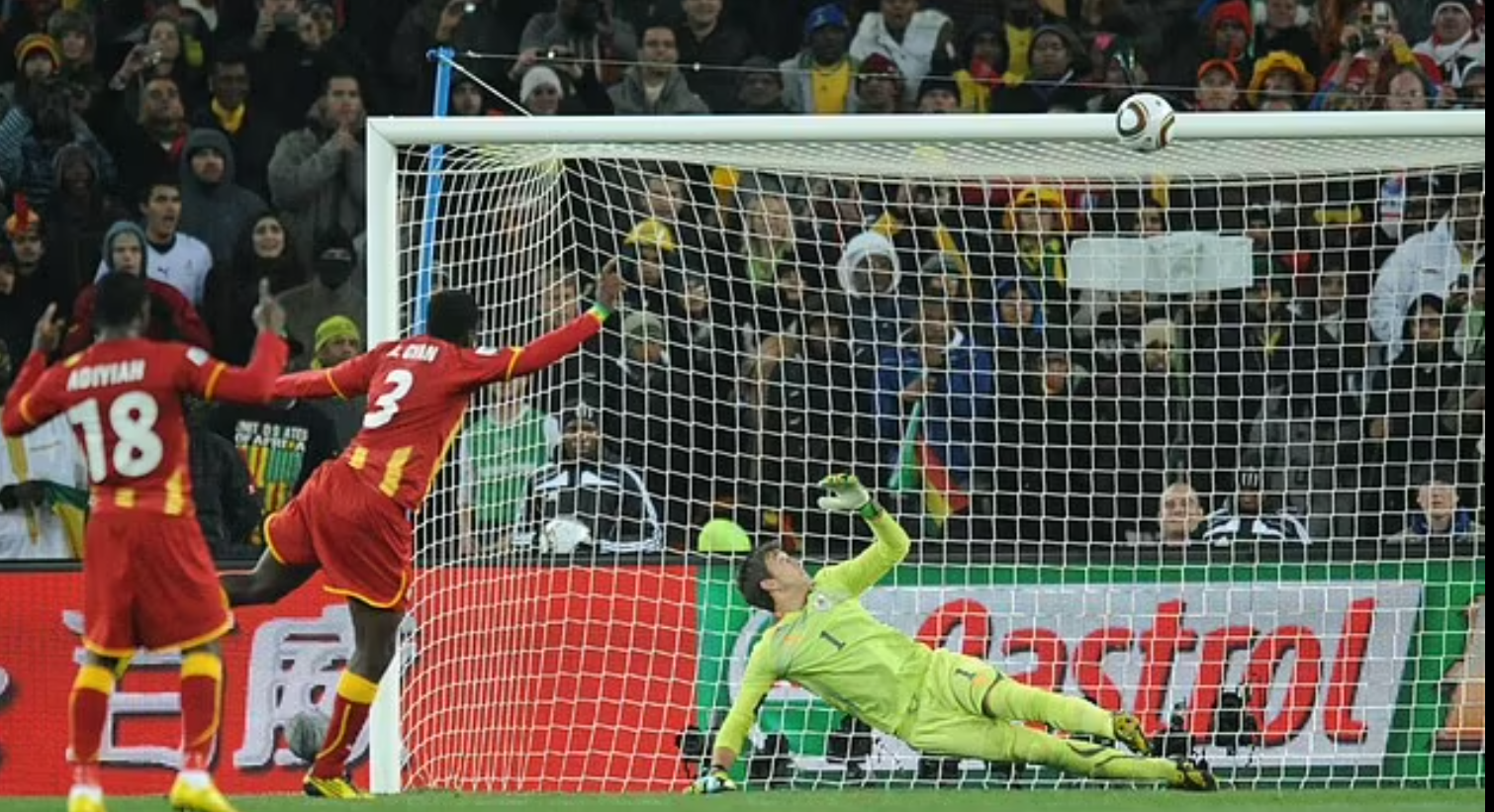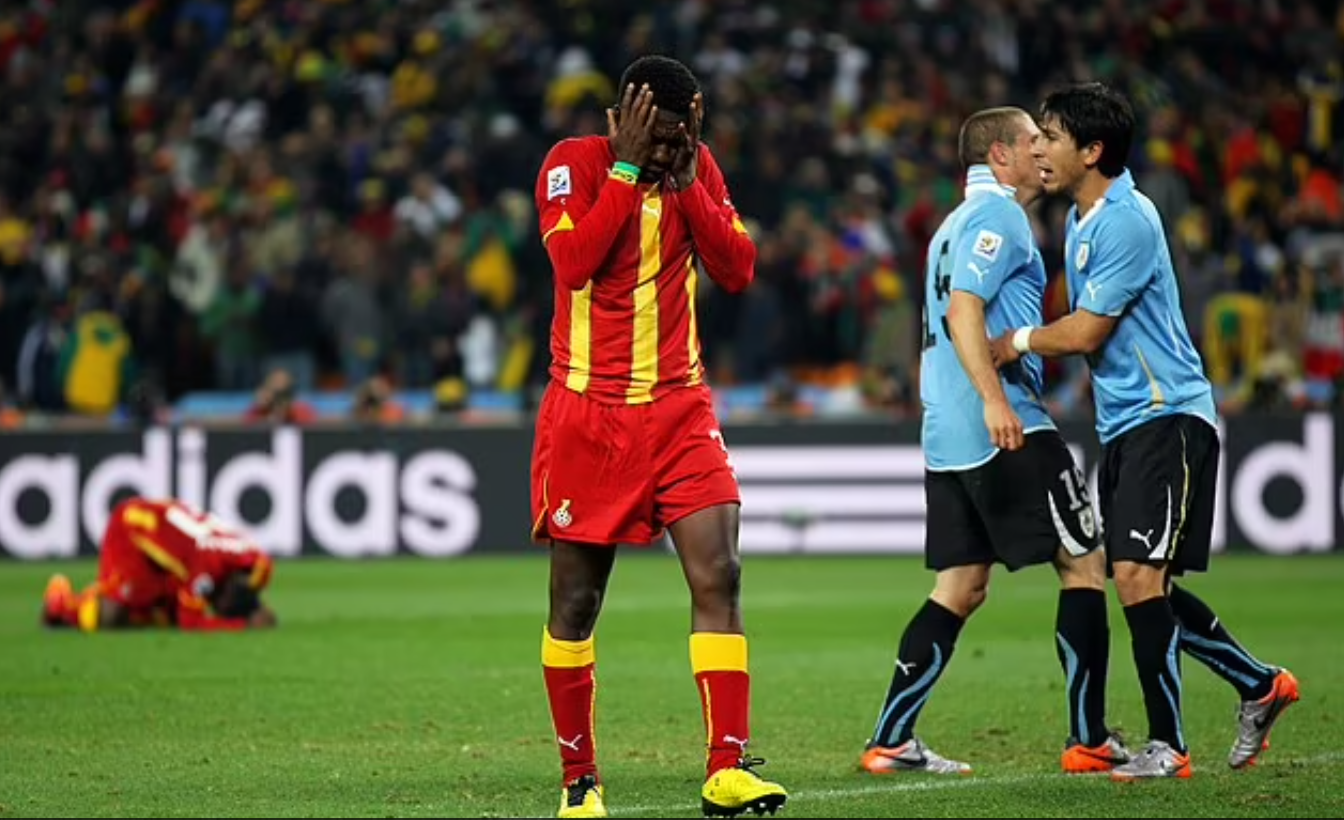
The year is 1990 and the World Cup is happening in Italy. The first game of the most celebrated global sports festival is 60 minutes in and Cameroon is a man down against star-studded Argentina.
Cameroon had just made history. They had just become the first team to have a player sent off in the opening game of the Mundial but I doubt that was a history they wanted to create. They wanted something else and they wouldn’t have to wait for too long.
In the 66th minute, Oman Biyik nodded in the only goal of that game. The stadium erupted. Fans all over the world celebrated that goal. That was Africa’s moment on the global stage and they took it with glory.

Shot: Biyik’s goal
Cameroon went ahead to win that game. They caused, perhaps, the greatest upset in a World Cup opening game in the history of the competition. From there, Cameroon made sure Africa was largely imprinted in the minds of football lovers across the globe.
Cameroon set the stage for subsequent electric performances from African teams.

In short: Senegal 2002 squad.
That stage was what Senegal jumped on to bring smiles to millions across Africa in 2002. Arguably one of the best African teams to be assembled, the 2002 Senegalese team was a spectacle to behold. That team came with dazzling dribblers, experienced goal poachers and a host of players who knew how to celebrate a goal. From Aliou Cisse, to Papa Bouba Diop, Kalilou Fadiga, all the way El-Hadji Diouf and Henry Camara. The Senegalese team of 2002 had everything. In the dugouts, they had Bruno Metsu as a coach and they were as ferocious as they came.
When the team played France in Seoul, the world knew they had a game on their hands but only a handful ever dreamed that Senegal will dispatch the almighty French team. For those who even believed, there was that lingering doubt. The French were gifted. So gifted that the legendary Zinedine Zidane was on the bench for that game and not a single fault was in that midfield. In effect, he wasn’t missed. Senegal was just too good to go away. The team went all the way to the quarter-final stage. A record they held in Africa until Ghana decided to assemble the 2010 Black Stars team.
In 2010, the World Cup was on African soil for the first time. The tournament in South Africa saw some of the biggest crowds recorded for a World Cup event. When the games started, African countries did not hesitate to prove that they were home. The Bafana Bafana opened the competition with a captivating performance but it was the Black Stars of Ghana that stole the show in South Africa.
After beating Serbia by a goal to nil, they went ahead to share the spoils with the Socceroos of Australia before losing narrowly to Germany by a goal to nil.
The team had some telepathy. They played with some courage that was satisfying to watch. In 2010, Ghana boasted one of the best midfield in the competition. With a balanced mixture of experience and flair, the midfield was packed with talent. Ghana’s coach at that tournament was Milovan Rajevac. A man who had a war chest of players. There was Sulley Muntari, Kevin-Prince Boateng, Stephen Tornado Appiah and the deadliest marksman Africa has ever presented at the global festival, Asamoah Gyan. The game against Uruguay is indelible in the minds of the Ghanaians. Ghana had the golden opportunity to break the quarter-final curse that had plaqued African countries for so long at the World Cup. A penalty was awarded to Ghana in the dying minutes of extra time. Between Africa and the hoodoo stood Fernando Muslera and in goal for their South American nemesis. What happened after the blast of the referee’s whistle for that penalty, is better left unsaid. It remains one of the coldest football memories for African football fans.


Shot: Asamoah Gyan’s missed penalty
African teams have always put on a show at the World Cup. In Qatar, the big question, however, remains; is this the year yet for an African country to win or make the last four of the tournament?
Written by
Edem Vine Tutu
EIB Sports
Source: Kasapafmonline.com
